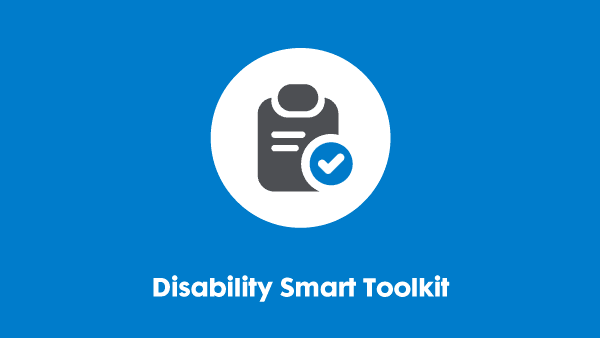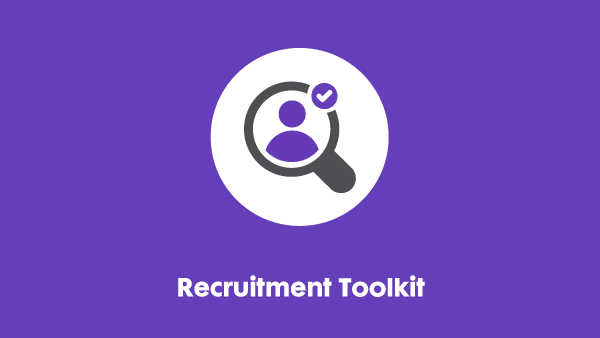Last updated: 12 December 2024
Attracting and hiring disabled candidates
Attraction and advertising
Many employers find attracting talented disabled candidates to be harder. Building the expectation of welcoming and fair treatment for disabled applicants into your employer brand is essential.
Publicise your commitment to employing people with disabilities in the careers information which you make available on your website or in recruitment packs. If you use testimonials, include contributions from disabled employees.
Ensure that the first contact with every candidate is positive.
Provide constructive feedback to all unsuccessful candidates including those with known disabilities.
Consider options to give disabled people experience of your organisation, such as offering work experience, temporary positions and using government programmes.
Disabled people do not necessarily read the disability press. However, it may be useful to advertise general messages in such publications to help build your reputation.
When advertising for specific positions:
- Use positive wording like, “we welcome disabled applicants” or “being part of Business Disability Forum’s membership, highlights our commitment to becoming a disability-smart organisation”.
- Provide a point of contact by telephone, email and textphone or mobile phone for people who are concerned about the recruitment process.
- State that applications will be accepted in alternative formats, e.g. by email or in audio format.
- If you participate in the Disability Confident Scheme, include this in your advert.
Our Inclusive Communication Toolkit has guidance to help you ensure your communications with candidates are accessible and inclusive.
Remember, it is unlawful for employers to place or have placed on their behalf advertisements, which might be discriminatory, e.g. an advertisement stating that the post is not suitable for people with certain disabilities, or where it appears that reasonable adjustments will not be provided, e.g. requiring an applicant to have a driving license when travel could be undertaken by other means.
Application forms
Application forms are popular with employers because they are generic and allow easier comparison between applicants. However, this drive for uniformity can disadvantage people who may well be excellent candidates but do not have standard educational qualifications or who have gaps in their work history.
While some disabled people may have had less formal education and spent time out of work for treatment or rehabilitation, they may well have other experience and skills to bring to the workplace.
If you do use application forms:
- Avoid making application and online registration forms overly long and complicated, as this makes it difficult for some people to apply and may particularly disadvantage some disabled people who take longer to fill out forms.
- If you are unable to change complex forms, help people to complete them (for example, by providing guidance on how to complete them) and be innovative in offering ways of getting round the barriers they represent.
- Ensure every question is relevant to the position. Clearly mark which information is required and which optional.
- If you use standard application forms that request information which may not be relevant to a specific position, ensure this information does not influence any decision to offer an interview or employment. In addition, state that it is a standard form and make it clear you will only take into account those questions which are relevant to the particular position.
- Allow space for the applicant to give details of experience they have gained outside the workplace.
- Use simple straightforward language. This will help everyone, especially those with disabilities affecting cognitive ability, learning difficulties and those who have English as a second language.
- Ensure any online recruitment process is accessible to disabled candidates.
When providing online application forms ensure the applicant can see what the application form involves before they begin and what information they will need to provide. If possible, give an estimate of how long the form will take to complete. The applicant should be able to print off the form to help them to prepare their answers and be able to save the form and return to it later. Beware in particular online recruitment processes which ‘time out’ if the person is taking too long to complete the form.
Applicants should have the option to return the form in a different format if this is easier for them, e.g. paper format or by email. This is best practice and might be a requirement under the Equality Act 2010.
If the applicant can apply in a variety of formats, it may be reasonable to specify the one you would prefer to receive and will respond in, for example, email rather than Braille.
Asking for information about disability
The Equality Act 2010 makes it unlawful for employers to ask applicants general questions about their health, medical history or disability prior to making an offer of employment. This includes asking applicants to complete a standardised medical questionnaire that asks questions about past and current illnesses, injuries, treatment or medication, for example antidepressants.
Employers who ask questions about past sickness absence on application forms or in references from previous employers requested prior to a job offer may also be acting unlawfully as this could be interpreted as asking questions about health or disability.
What is still lawful?
Employers can ask applicants if they need any workplace adjustments for the application process or interview.
Employers can ask applicants how they will carry out any intrinsic elements of the job and if there are any limitations on them carrying out such duties. For example, employers can ask applicants for a job as a driver if there are any health restrictions on their ability to drive.
Employers can ask successful candidates health or disability related questions so that any necessary reasonable adjustments can be made after a job offer has been made.
Employers can ask questions about disability for equal opportunities monitoring purposes and in order to take positive action: for example, guaranteed interview schemes under which interviews are guaranteed to disabled applicants who meet the essential criteria for a post.
Enforcement
The Equality and Human Rights Commission (EHRC) can take enforcement action against any employer that does ask questions about health or disability prior to the offer of a job. Employers found guilty of discrimination will be required to draw up an action plan, overseen by the EHRC. Failure to comply could result in a £5,000 fine.
In addition, a job applicant who believes that they suffered a detriment for example by not being appointed because of questions they were asked about their health or medical history may use the questions asked as evidence of disability discrimination in a tribunal claim. It will then be for the employer to prove that the answers to these questions did not influence the decision not to appoint the applicant.
If you require this content in a different format, contact enquiries@businessdisabilityforum.org.uk.
© This resource and the information contained therein are subject to copyright and remain the property of the Business Disability Forum. They are for reference only and must not be copied or distributed without prior permission.


